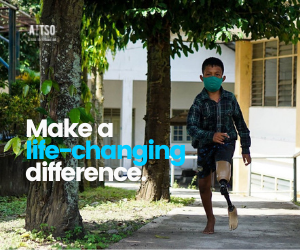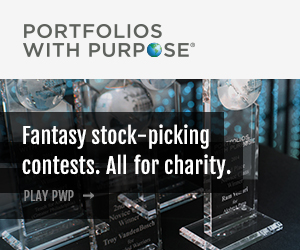Impact Investing Opportunities Blooming Outside Of Traditional Sources
Partner Content provided by WM Nexus
The vast majority of private funding continues to follow established channels - usually in Silicon Valley, and to a lesser extent, hubs such as the UK’s Golden Triangle.
It is also dominated to an extreme degree by male founders, with women founders attracting less than 2% of funding and women of colour less still, according to the European Investment Bank's Funding women entrepreneurs: How to empower growth report it published in June 2020.
With the rise in impact investing, does this mean that ideas, geographies and a different type of founder are being overlooked, meaning, in turn, that the world is missing out on hugely beneficial impacts?
Three investors - who have set out to challenge this funding-as-usual approach - Catja Thum, Impact investor and philanthropist with family office 3C, Sharon Vosmek, CEO of Astia and Mark Beaumont partner at Scotland-based Eos Advisory debated the subject of ‘Achieving impact through entrepreneurship’ at the WM Impact Investing Forum.
Vosmek noted that the pandemic and resulting economic crisis had aggravated these funding disparities even as women-founded and led businesses had become more relevant.
“The UN and most economists know that if you include women in companies, in the economy more broadly, in ownership rights, in wealth, you ultimately end up impacting all other ESG and SDG measures. The broader impact of women in society is most acutely felt and achieved when women are able to fully participate. We’re able to see the results of the investments playing out in the companies and the innovations they bring to market.”
A sense of mission is essential, but not at the expense of returns.
Thum said: “We focus on social entrepreneurship and social enterprises. The hybridity of these enterprises is a fascinating mix, mission driven, but also with profit.”
She describes this as a triple bottom line – the bottom line is profit, the double bottom line for social enterprises is profit and mission outcome, or profit or people.
The triple bottom line is social, environmental and financial summed up as profit, people and environment.
She added: “We are mainly looking at female founders and founders of colour, and how to close the gap of funding for this group. We want someone with a mission who's very driven, who has discovered a niche where they can address a social lack.”
Beaumont added: “There is an opportunity as a seed stage investor to have the greatest say in the overall structure, in those formative years of what the business grows up to be, so when you're putting in a commercial team, really understanding diversity and understanding different strengths by geography, backgrounds and opinion is so valuable.”
Beaumont set his firm’s approach in the context of Scotland’s relative lack of early-stage financing despite a strong university, laboratory and industrial research base. Eos Advisory set out to change that.
He said: “It is about getting the relationships right with founders, understanding the IP relationships with universities and bringing in inward investment from much bigger commercial markets.
“It's been a fascinating evolution over the last seven years - taking a lot of academic deep science businesses and steering them towards global markets. We are about finding founders with a great vision, but then bringing in great co-investment, which is very different to the private equity approach which is a lot more territorial.”
All the speakers had examples of investments which had succeeded during the pandemic often because their niche provided an answer to its challenges.
Vosmek said: “Hawthorne Effect brings innovation to clinical trials enabling and unleashing tools that allow local clinicians to gather the data for trials, ensuring that participants don't need to travel back to an academic setting to continue to track their progress.”
It has proved of huge worth when applied to gathering and understanding data from Covid testing and vaccinations in the US.
It was driven by Jodi Akin, CEO & Founder of Hawthorne Effect, whom Astia already knew from previous work.
“We knew that she would do it in a very thoughtful and sophisticated way, both based upon her prior experience in industry, but equally based on her passion for the space. It's one thing to have innovation. It's absolutely necessary to have deep science. But equally when we're talking about impact companies, making sure that the entrepreneurs are grounded in the solutions they're creating, often leads to a stickier result. We’ve now seen that when a pandemic strikes the company can actually grow and thrive, as it provides solutions that are far more relevant and far more needed.”
Beaumont’s firm has had success with 14 businesses out of 14 to date though he admitted that such a success rate is unlikely to be sustainable. However, he echoed Vosmek’s sentiment about really knowing and understanding the founders.
“Fundamentally, you're backing people and innovation, and IP. So unlike later stage investments when you're looking at financial track records, it's a very different due diligence process.”
He cited the example of Enough Foods, which came out of Strathclyde University.
“Enough Food exists in exactly the same space as Beyond Meat. What I'm interested in, is how can these companies in the food and water security area create enough protein for a growing world population?
“How do you create protectable technologies, which are scalable, and build the right market traction? At other times it’s about being able to bring in investors from bigger commercial markets. We're good at finding the opportunities, we're good at analysing them and growing the companies. But if you're going to become a global success, you often need to work with investors in Japan, Germany, US and other markets.”
Thum gave the example of a niche lending business 3C had backed, looking to make loans more accessible to SMEs. “AskIf was one of the very few lenders accredited with the British Business Bank, able to give out Bounce Back and CBIL loans. They had a debt portfolio which - in normal business days - would probably have taken a year or two to lend out but with everyone scrambling for the CBIL loans etc, they were able to hand the money out quickly as the other banks and fintechs were not accredited to do so.”
Yet despite these proven and dramatic examples, hurdles remain.
Vosmek said the methods used by VCs exacerbate the situation – introductions may be required but within a male-dominated network. They rely on hunches which likely encourages bias.
She has an antidote. “We’ve created a documented, rigorous, algorithmic approach to assessing investment opportunities. We call it the Astia Expert Sift. It relies on a global community of over 5000 individuals, expert advisors. It is highly curated. We use advisers systematically to ensure the removal of gender, race, geographic and age bias in the investment screening process.
“It makes us unusual investors. We know that we lead with our values, which means we measure for bias at each stage in the assessment of the company. Equally, it performs well for finding best in class investments and has done so across geographies in a really beautiful way.”
**********
John Lappin is a Contributing Editor at WM Nexus
***
The views expressed in this article are those of the author and do not necessarily reflect the views of AlphaWeek or its publisher, The Sortino Group
© The Sortino Group Ltd
All Rights Reserved. No part of this publication may be reproduced, stored in a retrieval system or transmitted in any form or by any means, electronic, mechanical, photocopying, recording or scanning or otherwise, except under the terms of the Copyright, Designs and Patents Act 1988 or under the terms of a licence issued by the Copyright Licensing Agency or other Reprographic Rights Organisation, without the written permission of the publisher. For more information about reprints from AlphaWeek, click here.







